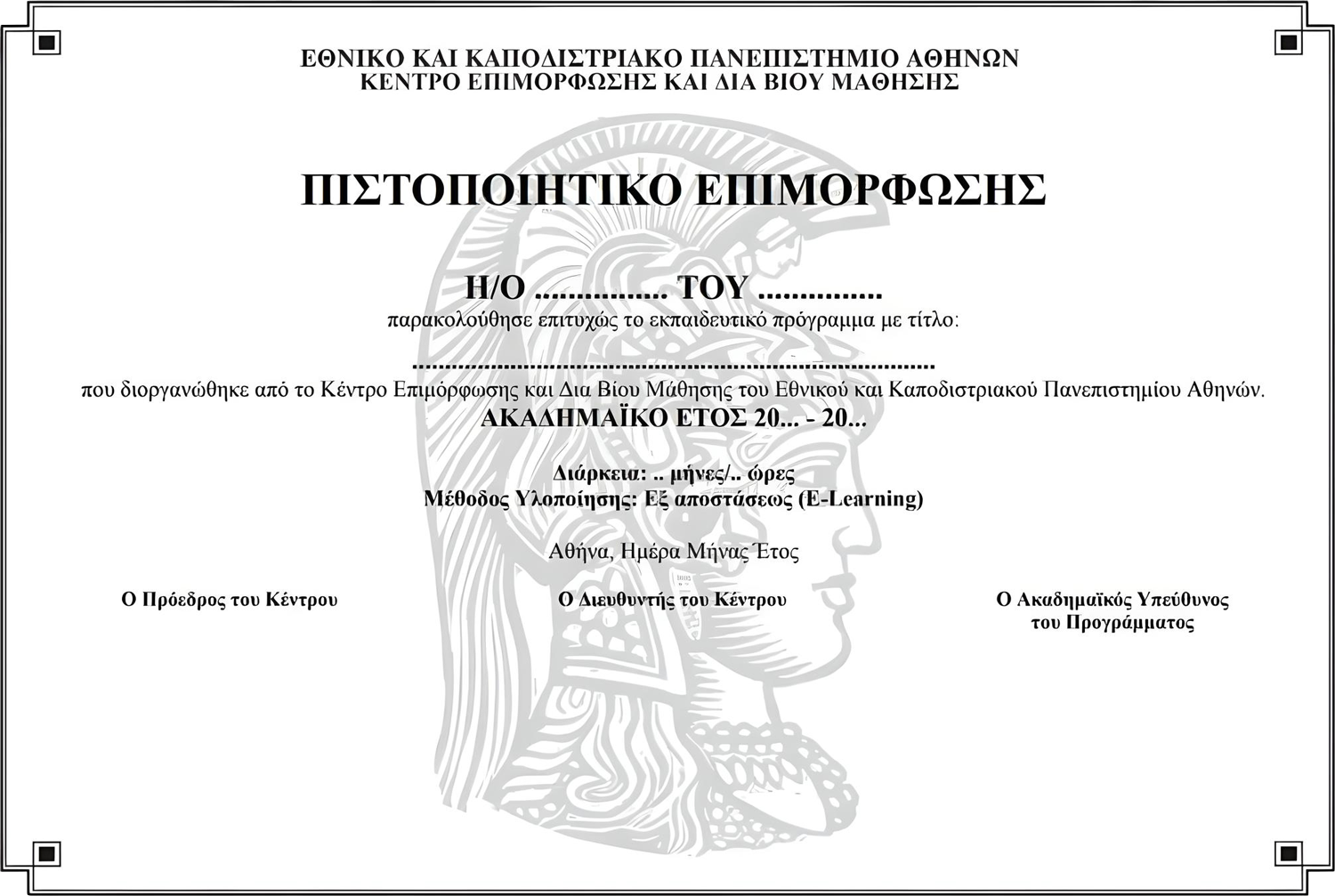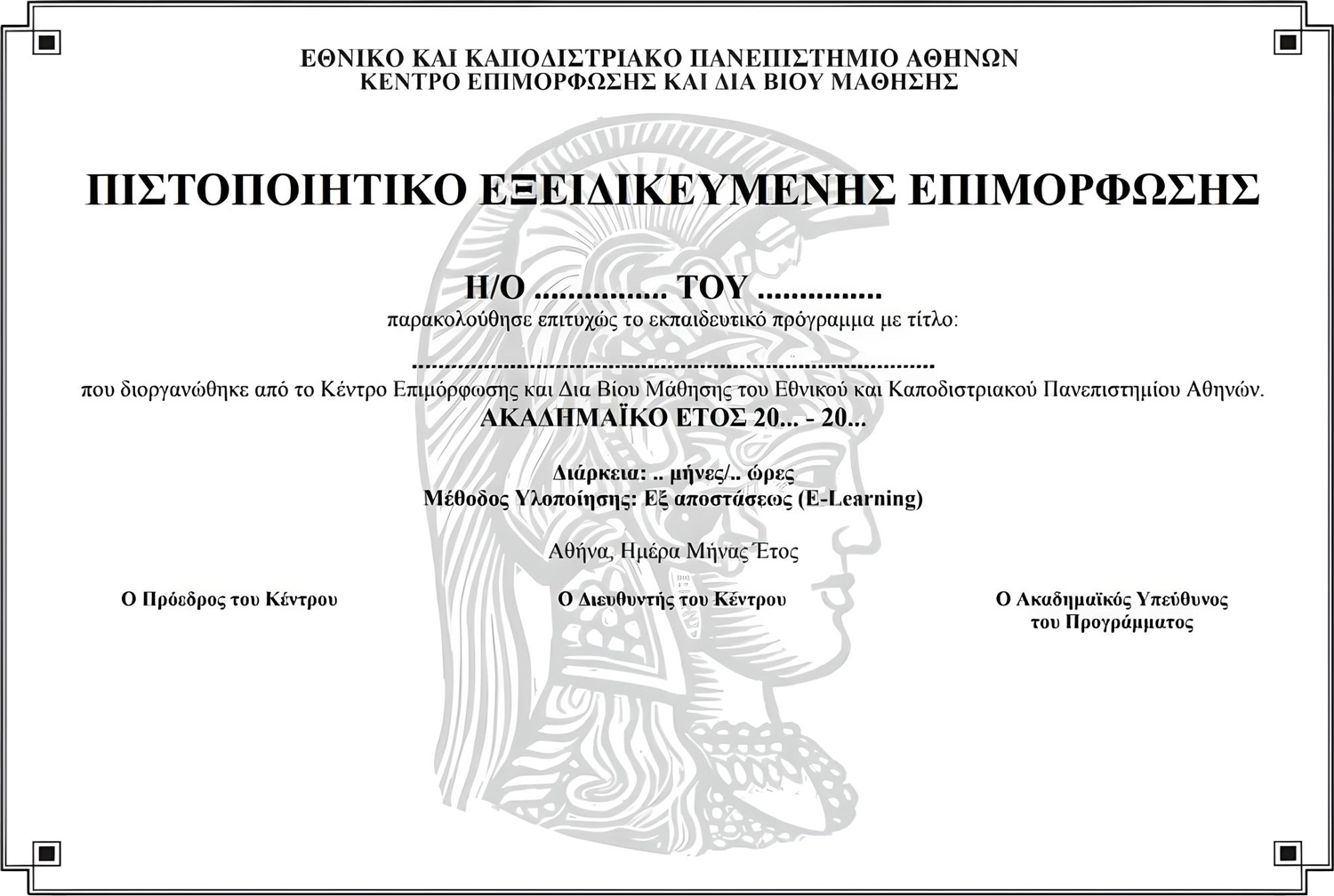Financial Statement Analysis for Business Decision-Making
-5% for Early Entry until 8/1/2025
Application until 12 Feb. 2025

-
Mode of Study
Distance Learning
-
Duration
5 Months
-
Credits
16 ECVET
-
Tuition Fees
600€ (without discount)
Program Objectives
The objective of the Financial Statement Analysis for Business Decision-Making program is to familiarize participants with the fundamental principles and methods of financial analysis to enhance their managerial skills.
The program aims to provide participants with the necessary tools to collect, analyze, and interpret financial information related to a business entity. This enables them to make relevant comparisons, calculate key financial ratios, and support their decisions with concrete data.
By adopting this approach, business decisions will not rely on assumptions but rather on actual figures, thus reducing uncertainty in outcomes as much as possible.
The program combines theory with the study of real-world cases and practical applications.
Training Cycle Calendar
-
27/1/2025
Application Deadline
-
30/2/2025
Program Start Date
-
4/2025
Certificate Award
During Christmas, Easter, and the month of August, the Executive Program is temporarily suspended.
Who Should Attend
The Executive Program in Financial Statement Analysis for Business Decision-Making is designed for senior executives and managers in businesses and organizations who seek to develop their knowledge of financial analysis to improve their decision-making abilities.
Skills You Will Gain
Through the Executive Program in Financial Statement Analysis for Business Decision-Making, participants will gain multiple benefits. Specifically, a graduate will be able to:
Explain the purpose of financial analysis.
Classify different types of financial analysis.
Analyze a company’s financial statements.
Extract critical information from financial statements.
Define and justify the importance of financial ratios.
Calculate key financial ratios.
Determine a company’s break-even point.
Apply common-size financial analysis techniques.
Identify the key determinants of working capital.
Describe the business decision-making process.
Course Modules
Total Duration: 5 Months Teaching Hours: 400
Introduction to Financial Analysis & Stakeholders
2 WeeksPurpose of financial analysis
Categories and objectives of analysts
Types of financial statement analysis
Methods of Financial Statement Analysis: Time Series, Cross-Sectional, and Trend Analysis
2 WeeksComparative (Time Series) Analysis
Cross-Sectional (Vertical) Analysis
Trend Analysis
Ratio Analysis
2 WeeksFinancial ratios as a performance evaluation tool
Categories of financial ratios
Liquidity Ratios
2 WeeksCurrent Ratio
Quick Ratio
Defensive Interval Ratio
Cash Ratio
Activity Ratios
2 WeeksAccounts Receivable Turnover Ratio
Inventory Turnover Ratio
Net Working Capital Turnover Ratio
Asset Turnover Ratio
Profitability Ratios
2 WeeksNet Profit Margin
Gross Profit Margin
Return on Equity
Return on Capital Employed
Financial Leverage Ratio
Solvency Ratios
2 WeeksEquity to Total Assets Ratio
Equity to Debt Ratio
Equity to Fixed Assets Ratio
Fixed Assets to Long-Term Liabilities Ratio
Current Assets to Liabilities Ratio
Interest Coverage Ratio
Investment Ratios
2 WeeksEarnings Per Share Ratio
Dividend Yield Ratio
Intrinsic Value of a Stock
Payout Ratio
Price-to-Earnings Ratio
Working Capital & Cash Flow Statements
2 WeeksDefinition of Working Capital
Determining Factors of Working Capital
Adequacy of Working Capital
Purpose and Usefulness of Cash Flow Statements
Categories of Cash Flow Elements
Limitations of Cash Flow Statements
Break-Even Analysis
2 WeeksConcept of Break-Even Analysis
Determination of Break-Even Point
Methods of Calculating Break-Even Point
Discount Categories
-
Category A – 10% Discount
Unemployed individuals
Persons with disabilities
Employees of universities and research centers
Groups of three or more participants from the same organization
-
Category B – 5% Discount
Early registration up to one month before the application deadline
Full tuition payment before the program start date
Please note that the above discount categories cannot be combined. If a participant qualifies for both categories, only the higher discount will be applied.
Certificate
Successful completion of the program leads to the award of a certificate, which includes the program title and the exact number of training hours. Depending on the program, the awarded certificate may be:
Europass / ECVET Certificate Supplement
The Europass / ECVET Certificate Supplement is a document that accompanies the training or specialized training certificate awarded upon program completion.
It provides a detailed description of the training program, including the course modules, duration, admission requirements, assessment process, learning outcomes, and the skills and competencies acquired.
It enhances the value of the awarded training or specialized training certificate and can be used by graduates for employment opportunities, career advancement, or further studies.
Methodology
-
Training Method
Distance learning (e-learning) through an interactive platform.
-
Platform Features
User-friendly, includes e-books, interactive content, multimedia, self-assessment, and livestreaming.
-
Structure
Learning modules with study guidelines.
-
Content
Objectives, outcomes, keywords, introduction, main text, examples, case studies, exercises, audiovisual material, slides, summary.
-
Support
Continuous communication and livestream meetings with instructors.
-
Assessment
Self-assessment, exercises, and final evaluation with multiple-choice questions and the option for retaking.
Contact
-
210 368 9430
Executive Programs Secretariat, Monday to Friday (11:00 – 17:00)
-
executive-programs@econ.uoa.gr
Contact via email
-
Sofokleous 1 Street
Executive Programs Secretariat, Monday to Friday, 11:00 – 17:00, at Grypareion Megaron, Sofokleous 1, 5th floor, Office 518, Athens, Postal Code 10559


